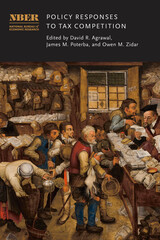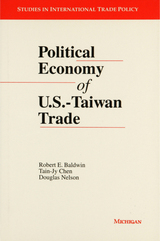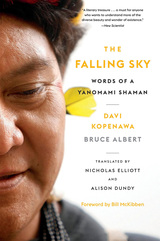
The 10th anniversary edition
A Guardian Best Book about Deforestation
A New Scientist Best Book of the Year
A Taipei Times Best Book of the Year
“A perfectly grounded account of what it is like to live an indigenous life in communion with one’s personal spirits. We are losing worlds upon worlds.”
—Louise Erdrich, New York Times Book Review
“The Yanomami of the Amazon, like all the indigenous peoples of the Americas and Australia, have experienced the end of what was once their world. Yet they have survived and somehow succeeded in making sense of a wounded existence. They have a lot to teach us.”
—Amitav Ghosh, The Guardian
“A literary treasure…a must for anyone who wants to understand more of the diverse beauty and wonder of existence.”
—New Scientist
A now classic account of the life and thought of Davi Kopenawa, shaman and spokesman for the Yanomami, The Falling Sky paints an unforgettable picture of an indigenous culture living in harmony with the Amazon forest and its creatures, and its devastating encounter with the global mining industry. In richly evocative language, Kopenawa recounts his initiation as a shaman and first experience of outsiders: missionaries, cattle ranchers, government officials, and gold prospectors seeking to extract the riches of the Amazon.
A coming-of-age story entwined with a rare first-person articulation of shamanic philosophy, this impassioned plea to respect indigenous peoples’ rights is a powerful rebuke to the accelerating depredation of the Amazon and other natural treasures threatened by climate change and development.
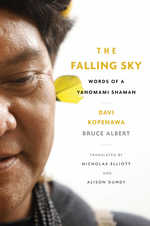
The Falling Sky is a remarkable first-person account of the life story and cosmo-ecological thought of Davi Kopenawa, shaman and spokesman for the Yanomami of the Brazilian Amazon. Representing a people whose very existence is in jeopardy, Davi Kopenawa paints an unforgettable picture of Yanomami culture, past and present, in the heart of the rainforest--a world where ancient indigenous knowledge and shamanic traditions cope with the global geopolitics of an insatiable natural resources extraction industry.
In richly evocative language, Kopenawa recounts his initiation and experience as a shaman, as well as his first encounters with outsiders: government officials, missionaries, road workers, cattle ranchers, and gold prospectors. He vividly describes the ensuing cultural repression, environmental devastation, and deaths resulting from epidemics and violence. To counter these threats, Davi Kopenawa became a global ambassador for his endangered people. The Falling Sky follows him from his native village in the Northern Amazon to Brazilian cities and finally on transatlantic flights bound for European and American capitals. These travels constitute a shamanic critique of Western industrial society, whose endless material greed, mass violence, and ecological blindness contrast sharply with Yanomami cultural values.
Bruce Albert, a close friend since the 1970s, superbly captures Kopenawa's intense, poetic voice. This collaborative work provides a unique reading experience that is at the same time a coming-of-age story, a historical account, and a shamanic philosophy, but most of all an impassioned plea to respect native rights and preserve the Amazon rainforest.
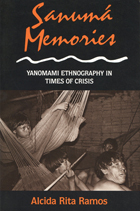
The Yanomami people of Brazil first attracted anthropological and popular attention in the 1960s, when they were portrayed as essentially primitive and violent in the widely read book Yanomamo: The Fierce People. To this image of the Yanomami another has recently been added: that of victims of the economic rapacity devouring the Amazon.
Sanumá Memories moves beyond these images to provide the first anthropologically sophisticated account of the Yanomami and their social organization, kinship, and marriage, capturing both individual experiences and the broader sociological trends that engulf them. A poignant personal story as well, it draws on Alcida Ramos's extensive fieldwork among the Sanumá (the northernmost Yanomami subgroup) from 1968 to 1992, as she reports on the brutal impact of many invasions—from road construction to the gold rush that brought the Yanomami social chaos, thousands of deaths, devastation of gardens and forest, and a disquietingly uncertain future.
At the cutting edge of anthropological description and analysis, Sanumá Memories ponders the importance of "otherness" to the Sanumá; describes Sanumá spaces, from the grandiosity of the rain forest to cozy family compartments; analyzes their notions of time, from the minute reckoning of routine village life to historical and metaphysical macro-time; shows how power and authority are generated and allocated in space and time; and examines the secrecy of personal names and the all-pervading consequences of disclosing them.

That long-standing dichotomy is challenged in this new ethnography by anthropologist José Kelly. Kelly places the study of culture and cosmology squarely within the context of the modern nation-state and its institutions. He explores Indian-white relations as seen through the operation of a state-run health system among the indigenous Yanomami of southern Venezuela.
With theoretical foundations in the fields of medical and Amazonian anthropology, Kelly sheds light on how Amerindian cosmology shapes concepts of the state at the community level. The result is a symmetrical anthropology that treats white and Amerindian perceptions of each other within a single theoretical framework, thus expanding our understanding of each group and its influences on the other. This book will be valuable to those studying Amazonian peoples, medical anthropology, development studies, and Latin America. Its new takes on theory and methodology make it ideal for classroom use.
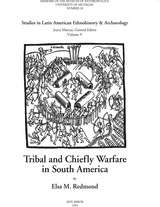
This book presents new data on warfare from both ethnohistoric and ethnographic sources. The author documents principal differences between tribal and chiefly warfare; outlines the evidence archaeologists can expect to recover from warfare; and formulates testable hypotheses on the role of warfare in social and political evolution. This monograph is part of a series on Latin American Ethnohistory and Archaeology.
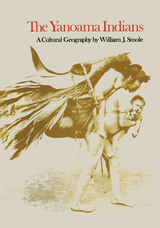
The Yanoama are one of the most numerous remaining aboriginal populations of the South American tropical forests, and their large territory constitutes a significant culture region. Although other scholars (anthropologists, geneticists, linguists) have studied this contemporary "neolithic" population, this is the first geographic study of the Yanoama. It is also the only book to focus on the Yanoama highland core area—the Parima massif—and it is the first study to analyze Yanoama horticulture as an integral part of their ecosystem.
The author is concerned principally with the spatial dimension as developed in Yanoama culture, with the spatial patterns of functioning systems, and with Yanoama ecology in this highland habitat. The natural environment is viewed, not as a cultural determinant, but as part of the total ecosystem. Livelihood activities constitute a major organizing theme and, among these, gardening receives the most attention. Frequently classified as a nomadic hunter-gatherer group, the Yanoama are found to have a deep-seated horticultural tradition, and many new data on this tradition are presented. As this study reveals, the Yanoama have created and maintained a cultural landscape that bears their distinctive stamp.
READERS
Browse our collection.
PUBLISHERS
See BiblioVault's publisher services.
STUDENT SERVICES
Files for college accessibility offices.
UChicago Accessibility Resources
home | accessibility | search | about | contact us
BiblioVault ® 2001 - 2025
The University of Chicago Press



